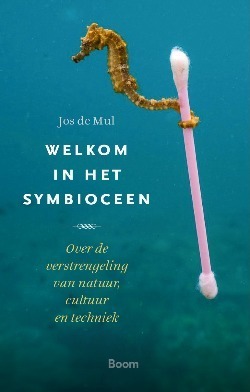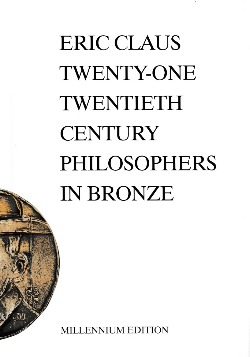Jos de Mul. Playful Identities: From Narrative to Ludic Self-Construction. Lecture and chair of the Playful Identities Panel at the international conference Paul Ricoeur and the Future of the Humanities.University of Groningen.
Jos de Mul: Playful Identities: From Narrative to Ludic Self-Construction
The aim of the interdisciplinary (conceptual-philosophical, media-theoretical, and qualitative empirical) Playful Identities (NWO) program (2005-2011) was to investigate if, and if so, to what extent and in what way, digital information and communication technologies are transforming the (construction of) personal and cultural identity. To that end we’ve developed a theory of ludic identity that critically elaborates on Ricoeur's theory of narrative identity. In this theory play and games are not only appropriate metaphors for human identity, but they are also conceived of as means by which people reflexively construct their identity. In his presentation, Jos de Mul will sketch the outlines of this theory of ludic identity, against the background of which the other panelists, who all participated in the research program, will present some of the research projects in more detail.
Affiliation: Prof.dr. Jos de Mul is full professor Philosophical Anthropology and head of the section Philosophy of Man and Culture of the Faculty of Philosophy at Erasmus University Rotterdam. He has also taught at the University of Michigan (Ann Arbor) and Fudan University (Shanghai). From 2007-2010 he was president of the International Association for Aesthetics, and in 2012 he was Visitor at the Institute for Advanced Study in Princeton. Contact details and online publications can be found at www.demul.nl
Michiel de Lange: Playing Life in the Ledia City: Rethinking Ricoeur’s Narrative Identity in a Non-Western Metropolitan Setting
Ricoeur's narrative identity theory concerns the mediation of human identity through stories. With the rapid rise of digital media technologies the question rises whether still "narrative is the privileged form of mediation". By presenting empirical evidence from fieldwork research in Indonesian metropolis Jakarta about mobile media use and by forwarding several strands of theoretical criticisms, I argue that narrative needs to be complemented with the notion of 'playful identity' in order to shift attention to changing processes of identity mediation under the influence of urban new media.
Affiliation: Dr. Michiel de Lange (PhD) is a part-time Lecturer New Media Studies, Utrecht University, Netherlands. He co-founded The Mobile City (http://www.themobilecity.nl), an independent research group that investigates the influence of digital media technologies on urban life, and implications for urban design. In 2010 he finished his dissertation about mobile media, urban life and identity. http://www.bijt.org/wordpress/about/
Sybille Lammes: Digital cartographies as playful practices
This presentation is about the triad relation between digital mapping practises, spatial stories and playful identities. Contrary to what media scholars have argued before about new media and contemporary cultures digital mapping practises have actually brought us new senses of place and a strong urge to locate ourselves and to come to terms with our identities through story-like constructions of our whereabouts. Central to my argument is the notion that digital cartographies allow a greater degree of two-way interaction between map and user than analogue maps do. Digital map users are not just reading maps, but also constantly influence the shape and look of the map itself. Digital maps have thus altered our conception of maps as ‘objectified’ representations of space that has been a touchstone for centuries. Instead they have become more personal sources for constructing stories of one’s whereabouts.
Affiliation: Dr. Sybille Lammes is associate professor at the Centre for Interdisciplinary Methodologies, University of Warwick. Contact information and online publications can be found at http://www2.warwick.ac.uk/fac/cross_fac/cim/people/lammes/.
Joost Raessens: Framing the frames- Identity construction through refugee games
Contemporay computer games are increasingly used not only to entertain people, but also to educate, train and inform them . These so-called ‘serious games’ have the potential to convince players of the veracity of a certain point of view of the necessity of a behavioral change. In this presentation, I will discuss the political rhetoric of refugee games such as Food Force and Darfur is Dying. Making use of our ludic identity theory, I will show how these games try to let the player identify with the space of possibilities disclosed by the game. By framing emergencies, wars and cultural identities building on the metaphor of the West as helping parent, refugee games are ideological and political spaces designed to recruit people to think, act, interact, value, and feel in certain specific ways.
Prof.dr. Joost Raessens holds the chair of Media Theory at the Faculty of Humanities, Utrecht University. His research concerns the ‘ludification of culture,’ focusing in particular on serious games and on the notion of play as a conceptual framework for the analysis of media use. Contact details and online publications can be found at: www.raessens.com
Valerie Frissen: Playing with bits and bytes: The savage mind in the digital age
This presentation relates the theory of ludic identity, as described above, to the way 'tinkering amateurs' have domesticated the internet in the last decades. Today´s web is extremely user-friendly and open to customization and tinkering: it invites play, improvisation and experimentation as well as it tempts the user to keep discovering new things. This tinkering amateur, joyfully playing around with all the bits and pieces that the web offers him, may be regarded as a symptom of what Johan Huizinga (2008) has labeled the ludification of our modern culture. Digital media reinforce the play element in our culture, which is partularly interesting from the perspective of identity construction. The way people use the internet resembles what was described by the anthropologist Claude Lévi-Strauss as 'bricolage' and 'pensee sauvage': a way of thinking whereby the concrete experience is prominent and abstractions derive from intuitive, playful improvisations and associations. The concrete 'bits and pieces' that the web provides its users with, can be seen in this context as ‘evocative objects’: objects to ‘think with’ and to express ourselves.
Affiliation: Valerie Frissen is principal scientist at TNO, professor of ICT & Social Change at EUR and director of CLICKNL, Network for knowledge & innovation in the creative industries.









